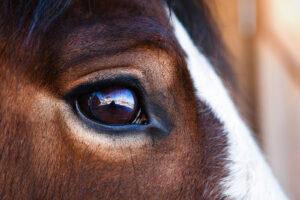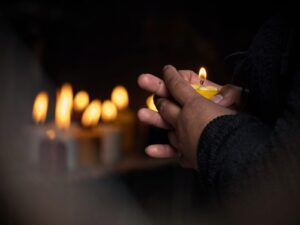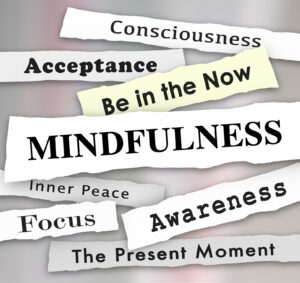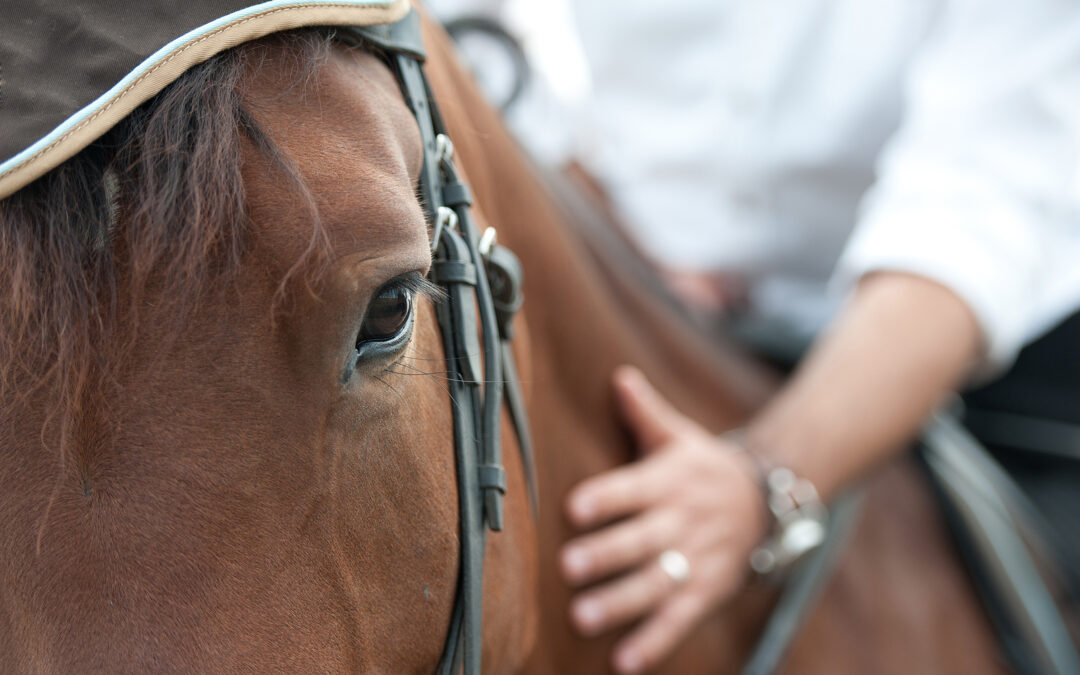
Have you ever thought about what your horses see?
Have you ever wondered what they are looking at when they stop and seem to stare into the distance for a long time? I knew they see things differently than us; however, I did not realize how differently they see things. So here is a link to a video that provides a fascinating perspective into how they see. I found this video fascinating. It shows how different the world looks to them and us. So, is this important for anything other than information?
I think it does, as when we start to ride, we look forward, and our horses look around them, as that is what they see. It is a form of protection for them; it is hard to sneak up on them as they see behind them. It also goes to the perception of safety and trust between horses and humans.
Trust and safety are also critical factors for us when riding and in life. Safety and trust often get eroded when something traumatic happens to us, and how we manage that trauma is essential. If a traumatic event occurs while riding, it can frequently affect how we ride and think about our horses and how we feel about ourselves. So, how can we increase our sense of trust and safety while riding?
We will first examine some events with horses and then consider ways to help them heal from these situations.
Trauma related to horseback riding can take various forms:
Physical injuries:
Falls from horses or being kicked or stepped on by a horse can result in physical trauma, such as broken bones, concussions, or other injuries. These injuries can not only cause physical pain but also lead to psychological trauma, mainly if they result in long-term disability or significant impairment.
Emotional trauma:
Some riders may experience emotional trauma related to their experiences with horses. This could stem from a particularly frightening incident, such as a bad fall or a horse behaving aggressively. Even witnessing accidents involving others can be traumatic. Additionally, riders may develop anxiety or fear around horses after experiencing a traumatic event.
Grief and loss:
 We often develop close bonds with our horses, as they are our friends and companions. We spend countless hours with them, riding, caring for them, and just being with them, so when they die, either through accident or from age, the sense of loss can be profound. We will grieve for them the same way we grieve for people very close to us. It is essential to allow ourselves to grieve for the animals we have cared so deeply for.
We often develop close bonds with our horses, as they are our friends and companions. We spend countless hours with them, riding, caring for them, and just being with them, so when they die, either through accident or from age, the sense of loss can be profound. We will grieve for them the same way we grieve for people very close to us. It is essential to allow ourselves to grieve for the animals we have cared so deeply for.
Flashbacks and triggers:
Traumatic experiences involving horses can lead to flashbacks or triggers—sudden and intense reactions to reminders of the traumatic event. For example, seeing a horse behave similarly to one involved in a past traumatic incident might trigger feelings of fear or anxiety.
Trust issues:
Trauma can erode a person’s trust, extending to their relationship with horses. Someone who has been injured by a horse or experienced another traumatic event may struggle to trust horses or feel safe around them in the future.
Feeling safe while riding horses is essential for enjoying the experience and building a positive relationship with these magnificent animals.
Here are some ways to help you feel secure when riding:
Please choose the right horse:
Finding a horse that matches our temperament, skill, and ability requirements can be complicated. We must ask ourselves what we want the horse to do for us. Are we serious competitors looking to increase skill level, or are we only interested in pleasure-riding trials? We must be honest about what we want to do when riding. That will need to be another discussion as honestly answering that question can sometimes be hard to admit or do.
Wear appropriate safety gear:
Safety gear in the horse world has improved dramatically recently and has become stylish and expected in many arenas. Finding the right gear can now be as easy as going to the local tack shop. There, you can find helmets, vests, and stirrups that help with shock absorption during a fall.
Take lessons from qualified instructors:
Lessons are always important in riding as they help us become more aware of how we interact with the horse. They help us improve our skills and our relationship with the horse. Often, what we are feeling or think we are doing is not what we are doing, and having someone we trust help us with this can make a big difference.
Start with groundwork:
Groundwork can be very helpful to both horse and rider. It helps you build communication skills and allows the horse to learn some of the skills that it will need when you are riding. Teaching a horse to avoid pressure will help with leg yields and bending when riding. Groundwork can be fun for both horse and rider, and there are many things to do and teach from the ground. I guess that can be another discussion for the future.
Listen to your body:
Pay attention to your physical and emotional state while riding. Our bodies tell us so much, and we often do not pay enough attention to them. So, noticing what you are feeling is the first step, and then deciding how to make adjustments is the next step.
Practice relaxation techniques:
Breathing is essential, so taking a deep breath can help you and your horse relax. Often, your horse will take a deep breath after you take one, as they will feel and hear the change in your heart rate. Visualization is also essential; seeing what you want to happen helps it become real.
Know your limits:
Stepping out of your comfort zone can often be a good thing, but knowing when you are too far out is also important. Working with a trainer can help you stretch your comfort zone and increase your limits. Pushing yourself too hard too quickly can ultimately undermine your confidence.
Taking these steps and prioritizing safety can create a positive and enjoyable riding experience while increasing security and confidence in the saddle.
Relaxation techniques can be incredibly beneficial for managing anxiety and staying calm while riding.
Here are some relaxation techniques that can be practiced while on horseback:
Deep breathing:
Focus on slow, deep breaths to calm your nervous system. Inhale deeply through your nose, allowing your abdomen to expand, and exhale slowly through your mouth. Repeat this breathing pattern several times, concentrating on the rhythm of your breath.
Visualization:
Visualize yourself riding confidently and harmoniously with your horse. Imagine yourself doing all the things that you want to do when riding. The more you practice this, the easier it will become. It is even best to write down what you want to visualize and then record it in your voice so you can listen to it repeatedly. This is because visualizing an activity activates the same things in your brain as doing them. So your brain will think you are riding confidently and correctly, and when you get on your horse, your brain will do what you have been visualizing.
 Mindfulness:
Mindfulness:
It seems you may hear that you should be mindful all the time and in all things, and it is a good thing to practice. Mindfulness means being present and focusing on the task without judgment. So, in riding, we are more aware of how we are sitting, how the horse is moving, and the sights and sounds of things around us. Practicing this will help with many things in our riding and life and gets easier with practice. The challenging part of mindfulness is the lack of judgment. We often notice how we are sitting and think it is wrong or something else, and then we get upset that we are not doing it right. Generally, if we notice something without judgment, we can change it quickly and easily.
Mantras or affirmations:
Repeat a calming mantra or affirmation to yourself silently or aloud. Choose a phrase that resonates with you and helps instill confidence and relaxation. For example, you might repeat phrases like “I am calm and centered” or “I trust myself and my horse.” Mantras help us refocus our attention on what we want and return to the present moment more easily.
EMDR, or Eye Movement Desensitization and Reprocessing, can also help change how we respond to previously traumatic events. This type of therapy needs to be done with a licensed professional therapist to help change thoughts and feelings about traumatic events. Please see previous articles about EMDR for additional information.
Safe Sound Protocol SSP can also be beneficial in changing how we respond to trauma and anxiety. This is also a specific therapy that works with the vagus nerve to help us return to calm. Please visit this link to learn more about this fantastic process.
Start Working with an Equine Sports therapist in Richmond, VA, and Powhatan, VA
It’s essential for you if you have experienced trauma related to horseback riding or other life events, to seek support from therapists specializing in trauma or equine-assisted therapy. Processing the experience and developing coping strategies to continue riding can help you regain a sense of safety and enjoyment around horses. If you want help getting back in the saddle, please contact me to discuss how I can help you enjoy this wonderful sport again. You can start your therapy journey with Gray Horse Counseling by following these simple steps:
- Contact me and schedule a free consultation.
- Check out my FAQs and read more about me
- Start feeling more safe when riding!
Other Services Offered with Gray Horse Counseling
Equine therapy isn’t the only service I offer support with. This is why I’m happy to offer I am available for in-person help in Powhatan, Richmond, and online in Virginia. Other services at Gray Horse Counseling include individual therapy, anxiety therapy, group therapy, equine sports, clinical supervision, trauma therapy, and depression treatment. Check out my FAQs, read about me, and contact me today to get the help you deserve!

